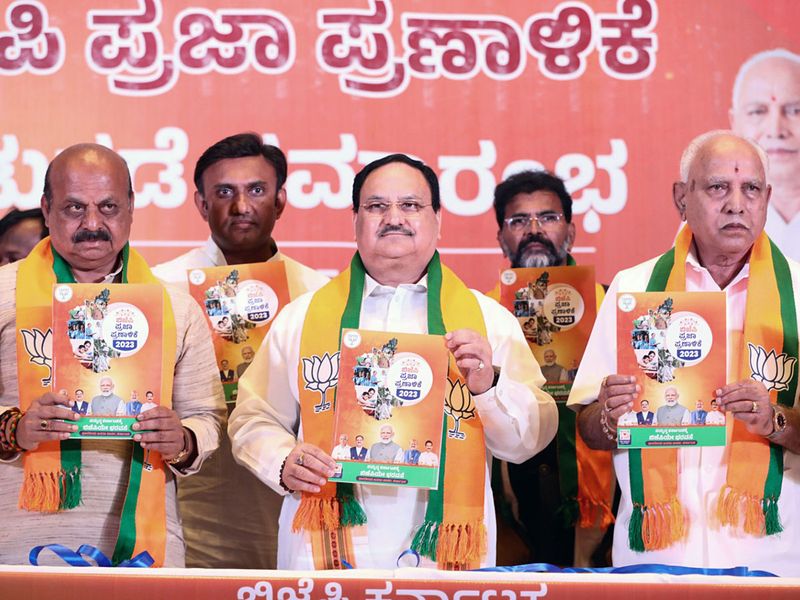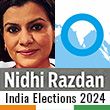On Monday (May 1), as the BJP released its manifesto for Karnataka, the freebie debate made a comeback to Page One of newspapers. After attacking opposition parties for promoting freebies, or what the prime minister called “revdi culture”, the BJP has done just that in Karnataka with the release of their manifesto, which promises free gas cylinders and free milk to poor families. In the context of India’s much-needed social welfare schemes, that is not a bad thing. But the BJP needs to stop the hypocrisy.
The manifesto promises three free cooking gas cylinders to all families below the poverty line each year. The free milk scheme promises poor families half a litre of Nandini milk daily and 5kg Shri Anna - siri dhanya through monthly ration kits. Party President JP Nadda defended the move saying this was not a freebie since the BJP is “taking care of the needs (of the poor) under welfare scheme and not greed”. So when they do it, it is “empowering the poor”. When the opposition does it, it’s a “populist scheme” or, as the prime minister called it, “a very dangerous development for the country”.
Is social welfare and a freebie?
So what is the difference between a social welfare scheme and a freebie? That is at the heart of this political face-off. The Aam Aadmi Party, or the AAP, has argued that providing people with free electricity and free education, for example, was an essential foundation to improve their lives.
The BJP government at the Centre as well as in opposition-ruled states, have been spending more on freebies. Official data shows the combined expenditures of states and the Centre on social welfare schemes has shot up by 10 per cent, from Rs65.24 lakh crore (Rs65.24 trillion) in 2020-21 to Rs71.61 lakh crore (Rs71.61 trillion) in 2021-22.
...the BJP’s attack on freebies is part of a much larger political plan. It is a strategy to target powerful regional parties that rely on promises of freebies and caste factors to win elections.

The debate over freebies is currently in India’s Supreme Court, which has constituted a three-judge bench to hear the matter. The court is looking at whether its judgement in 2013 on freebies should be reconsidered. In that order, the court had said that promises of freebies could not be termed a corrupt practice.
The issue is complex. This was reflected in a hearing some months ago where the court observed, “We cannot prevent political parties from making promises. The question is what constitutes the right promises. Can we describe the promise of free education as a freebie? Can free drinking water, minimum essential units of power, etc., be described as freebies? Can consumer products and free electronics be described as welfare?”.
Therefore what constitutes a freebie is not a simple answer. If you look at the example of Bihar, the free distribution of bicycles has improved school attendance among girls.
But the BJP’s attack on freebies is part of a much larger political plan. It is a strategy to target powerful regional parties that rely on promises of freebies and caste factors to win elections. The BJP’s biggest challenge in the political arena today comes not from Congress but from these regional parties. However, it is also true that voter behaviour is not always linked to a freebie. In Tamil Nadu, for example, political parties have promised everything from television sets to mixies (blenders), but the government changes every five years anyway.
Ultimately, the issue of freebies needs to be decided by voters.










